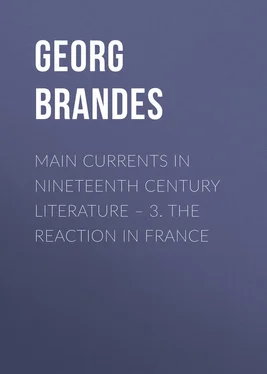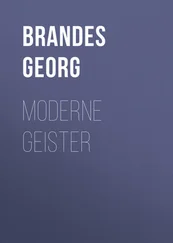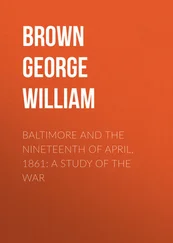Georg Brandes - Main Currents in Nineteenth Century Literature – 3. The Reaction in France
Здесь есть возможность читать онлайн «Georg Brandes - Main Currents in Nineteenth Century Literature – 3. The Reaction in France» — ознакомительный отрывок электронной книги совершенно бесплатно, а после прочтения отрывка купить полную версию. В некоторых случаях можно слушать аудио, скачать через торрент в формате fb2 и присутствует краткое содержание. Жанр: foreign_antique, foreign_prose, на английском языке. Описание произведения, (предисловие) а так же отзывы посетителей доступны на портале библиотеки ЛибКат.
- Название:Main Currents in Nineteenth Century Literature – 3. The Reaction in France
- Автор:
- Жанр:
- Год:неизвестен
- ISBN:нет данных
- Рейтинг книги:4 / 5. Голосов: 1
-
Избранное:Добавить в избранное
- Отзывы:
-
Ваша оценка:
- 80
- 1
- 2
- 3
- 4
- 5
Main Currents in Nineteenth Century Literature – 3. The Reaction in France: краткое содержание, описание и аннотация
Предлагаем к чтению аннотацию, описание, краткое содержание или предисловие (зависит от того, что написал сам автор книги «Main Currents in Nineteenth Century Literature – 3. The Reaction in France»). Если вы не нашли необходимую информацию о книге — напишите в комментариях, мы постараемся отыскать её.
Main Currents in Nineteenth Century Literature – 3. The Reaction in France — читать онлайн ознакомительный отрывок
Ниже представлен текст книги, разбитый по страницам. Система сохранения места последней прочитанной страницы, позволяет с удобством читать онлайн бесплатно книгу «Main Currents in Nineteenth Century Literature – 3. The Reaction in France», без необходимости каждый раз заново искать на чём Вы остановились. Поставьте закладку, и сможете в любой момент перейти на страницу, на которой закончили чтение.
Интервал:
Закладка:
William Lovell goes to Paris (which Tieck at that time had not seen), and is, of course, disgusted with everything there. "The town is a hideous, irregular pile of stones. One has the feeling of being in a great prison… People chatter and talk all day long without so much as once saying what they think… I occasionally went to the theatre, simply because time hung so heavily on my hands. The tragedies consist of epigrams, without action or passion, and tirades which produce much the same effect as the words issuing from the mouths of the figures in old drawings… The less natural an actor is, the more highly is he esteemed. In the great, world-renowned Paris Opera – I fell asleep." Such are the impressions made upon Lovell (an Englishman) by Paris at the time of the Revolution. It is nothing but an expression of the prevalent German contempt for the French character and French art, doubly unreasonable in this case because it has simply been learned by rote out of books. In the Théâtre Français, however, Lovell ejaculates: "O Sophocles! O divine Shakespeare!" and he characteristically observes: "I hate the men who, with their little imitation sun (namely, reason), light up all the pleasant twilight corners and chase away the fascinating shadow phantoms which dwelt so securely under the leafy canopies. There is, undoubtedly, a kind of daylight in our times, but the night and morning light of romance were more beautiful than this grey light from a cloudy sky."
With the exception of a few such touches, this work seems at the first glance to be distinguished by none of the peculiarities one is accustomed to associate with a Romantic production; but, as a matter of fact, there is no book which reveals to us more distinctly the foundations on which the Romantic movement rests. The main idea and the form of William Lovell (it is written in letters) were both borrowed from a French novel, Le Paysan Perverti , by the materialistic writer, Rétif de la Bretonne. The fact that we are able to trace the origin of a Romantic work directly to French materialism is not without significance; it is in reality from this materialism that the Romanticists derive their gloomy fatalism. Lovell is an extremely tedious book to read nowadays; the style is tiresomely diffuse, the characters are as if lost in mist. Some of the subordinate figures, the devoted old man-servant, for instance, are weak imitations of Richardson – there is not a trenchant trait nor a dramatic situation in the whole book. Its merit, which is as German as are its defects, lies in its psychology. The hero is a youth who is led, slowly and surely, to do away, as far as he himself is concerned, with all authority, to disregard every one of the traditional, accepted rules of life, until at last he is leading the life, not only of a confirmed egotist, but of a criminal.
It is a mistake to feel surprised that so young a man as Tieck could depict such a being. Is it not precisely at this early age, when his spiritual eyesight does not yet enable him to look abroad, that the youth is constantly occupied with all the strange things he sees when he looks into his own heart? Is it not then that he is impelled to unravel himself, to examine his own condition, to look at himself perpetually in the mirror held out to him by his own consciousness? With men of a certain disposition there is no more self-critical age than twenty or thereabouts. There is still so much of life before one then, so much time to do one's work in; one spends the days in learning to know the instrument upon which one is to play for the rest of one's life, in tuning it, or finding out how it is already tuned. The time is still distant when the mature man will seize upon that instrument, which is himself, and use it – as a violin or as a sledge-hammer, according to the requirements of the situation. And if surrounding circumstances offer neither tasks nor sustenance, and the Ego is obliged to go on living upon its own substance, the result will inevitably be the exhaustion, the demolition of the personality.
What is peculiarly characteristic of author, tendency, and period, is the sentimental extravagance to which this introspection leads. In all seriousness the individual dares to make his fortuitous Ego, which has disorganised everything that established custom requires men to respect, the standard of everything, the source of all laws. Here we have unmistakably a distortion of Fichte's fundamental idea. Read the following verses from Lovell and the succeeding reflection: —
"Willkommen, erhabenster Gedanke,
Der hoch zum Gotte mich erhebt.
Die Wesen sind, weil wir sie dachten,
In trüber Ferne liegt die Welt,
Es fällt in ihre dunkeln Schachten
Ein Schimmer, den wir mit uns brachten.
Warum sie nicht in wide Trümmer fällt?
Wir sind das Schicksal, das sie aufrecht hält!
Den bangen Ketten froh entronnen
Geh' ich nun kühn durchs Leben him,
Den harten Pflichten abgewonnen,
Von feigen Thoren nur ersonnen.
Die Tugend ist nur, weil ich selber bin,
Ein Wiederschein in meinem innem Sinn.
Was kümmern mich Gestalten, deren matten
Lichtglanz ich selbst hervorgebracht?
Mag Tugend sich und Laster gatten!
Sie sind nur Dunst und Nebelschatten,
Das Licht aus mir fällt in die finstre Nacht.
Die Tugend ist nur, weil ich sie gedacht." 11 11 "Welcome, sublime thought, that makes of me a god! Things are, because we have thought them. – In the dim distance lies the world; into its dark caverns falls a ray of light, which we brought with us. Why does this world not fall into atoms? Because the power of our will holds it together! – Glad at heart because I have escaped from my chains, I now go boldly forward in the path of life, absolved from those irksome duties which were the invention of cowardly fools. Virtue is, because I am; it is but the reflection of my inner self. – What care I for forms which borrow their dim splendour from myself? Let virtue wed with vice! They are but shadows in the mist. The light that illumines the dark night comes from me. Virtue is, because I have thought it."
"My outer self thus rules the material, my inner self the spiritual world. Everything is subject to my will; I can call every phenomenon, every action what I please; the animate and the inanimate world are in leading-strings which are controlled by my mind; my whole life is only a dream, the many forms in which I mould according to my will. I myself am the only law in all nature, and everything obeys this law."
When Friedrich Schlegel exclaims, "Fichte is not a sufficiently absolute idealist … I and Hardenberg (Novalis) are more what idealists ought to be," we remember that ten years previously, and long before there was any talk of Romanticism and Romanticists, Tieck had perceived what were to be the characteristics of the new school, i.e. personal lawlessness, and the glorification of this lawlessness, under the name of imagination, as the source of life and art. Lovell is an extravagant personification of these characteristics. Kierkegaard's Johannes the Seducer, the most perfect and the last example of the type in Danish literature, always keeps within certain bounds; he evades ethical questions, looking upon morality as a tiresome, troublesome power, and never attacking it directly; but Lovell, the more many-sided, the more boldly planned, if less skilfully worked-out character, recoils neither from treachery, nor bloodshed, nor poison. He is one of this period's many variations of the Don Juan-Faust type, with a touch of Schiller's Franz Moor. Satiety of self-contemplation has, in his case, led to a boundless contempt for mankind, to a ruthless sweeping away of all illusions; the one and only consolation being that thus hypocrisy is unveiled and the ugly truth seen. There is a close analogy with much that the Romanticists subsequently wrote in such an utterance as this: "Voluptuousness is undoubtedly the great mystery of our being; even the purest and most fervent love dives into this pool… Only ruthlessness, only a clear perception of the illusion can save us; Amalie is, therefore, nothing to me, now that I see that poetry, art, and even love, are only draped and veiled sensuality… Sensuality is the driving-wheel of the whole machinery … voluptuousness is the inspiration of music, of painting, of all the arts; all human desires flutter round this magnetic pole, like moths round a candle;… hence it is that Boccaccio and Ariosto are the greatest poets, and that Titian and the wanton Correggio stand high above Domenichino and pious Raphael. Even religious devotion I consider to be only a diverted course of that sensual instinct which is refracted in a thousand different colours." One would expect this Lovell, in whose meditations sensuality plays so great a part, to be represented as a man whose instincts lead him far astray. Not at all! He is as cold as ice, as cold as Kierkegaard's shadow of a seducer, whom he in this particular anticipates. He does not commit his excesses with his flesh and blood, but with his fantastically excited brain. He is a purely intellectual being, a North German of the purest water. And there is one particular in which he is, in anticipation, astonishingly Romantic. When he has, so to speak, burned himself out, when every spark of conviction is extinguished in his mind, and all his feelings lie "slain and dead" around him, he seeks refuge in the supernatural and places his trust in mystic revelations, of which an old impostor has held out the prospect. This trait, which, significantly enough, is not to be found in his French prototype, was necessary to complete the character.
Читать дальшеИнтервал:
Закладка:
Похожие книги на «Main Currents in Nineteenth Century Literature – 3. The Reaction in France»
Представляем Вашему вниманию похожие книги на «Main Currents in Nineteenth Century Literature – 3. The Reaction in France» списком для выбора. Мы отобрали схожую по названию и смыслу литературу в надежде предоставить читателям больше вариантов отыскать новые, интересные, ещё непрочитанные произведения.
Обсуждение, отзывы о книге «Main Currents in Nineteenth Century Literature – 3. The Reaction in France» и просто собственные мнения читателей. Оставьте ваши комментарии, напишите, что Вы думаете о произведении, его смысле или главных героях. Укажите что конкретно понравилось, а что нет, и почему Вы так считаете.












